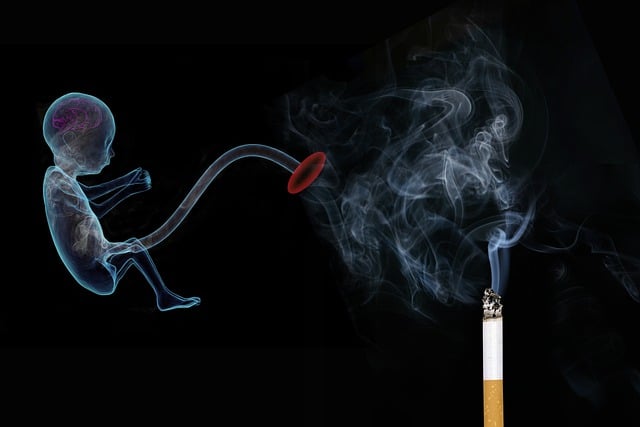Family dynamics significantly impact an individual's journey through addiction recovery. A supportive and understanding family environment, rich in positive reinforcement and unconditional love, is key to overcoming the challenges of recovery. Conversely, dysfunctional family patterns like codependency or denial can derail recovery efforts, potentially leading to relapse. It's essential for family members to engage in their healing process, educate themselves on addiction, and develop healthy communication skills and self-care practices. Therapy and support groups are vital tools for families to break negative patterns and promote open dialogue, which together with professional guidance, can lead to a supportive family dynamic that aids long-term recovery from addiction. Understanding and addressing the interplay between family dynamics and addiction is crucial in crafting effective treatment strategies and building strong, healthy familial relationships post-recovery.
Navigating the complex interplay between family dynamics and addiction recovery is a journey that touches the lives of many. This article delves into the profound influence family relationships have on an individual’s path to sobriety, offering insights into effective support systems and communication strategies that pave the way for healing. We explore the critical role of family in the recovery process, providing actionable guidance on setting healthy boundaries, engaging in therapeutic interventions, and educating oneself about addiction. Through a comprehensive examination of case studies and evidence-based practices, this piece aims to empower families to confront the multifaceted challenges of addiction together, fostering resilience, hope, and lasting change. Join us as we explore how family dynamics can either hinder or support addiction recovery, and how, with the right approach, a strong familial unit can be both a catalyst for recovery and a sanctuary of support in the face of this complex disease.
- Understanding the Impact of Family Dynamics on Addiction
- The Role of Family Support in Addiction Recovery
- Communication Strategies for Families Affected by Addiction
- Setting Boundaries with Love and Respect: A Guide for Families
Understanding the Impact of Family Dynamics on Addiction

Family dynamics play a significant role in the journey of addiction recovery. The intricate web of relationships within a family can both facilitate or hinder an individual’s path to healing. A supportive family environment can provide the emotional scaffolding necessary for an addicted person to navigate the challenges of recovery. This includes unconditional love, understanding, and the consistent reinforcement of positive behaviors. Conversely, dysfunctional family patterns, such as codependency, denial, or a lack of clear boundaries, can complicate the recovery process. These dynamics may inadvertently enable the addiction or contribute to relapse triggers. It is imperative for family members to engage in their own process of healing and education about addiction to create a more conducive home environment. This involves learning healthy communication skills, self-care practices, and setting realistic expectations for recovery. Through therapy and support groups, families can learn to break negative patterns, foster open dialogue, and establish a nurturing atmosphere that supports long-term addiction recovery. Understanding the complex interplay between family dynamics and addiction is crucial for effective treatment strategies and fostering resilient, healthy family relationships post-recovery.
The Role of Family Support in Addiction Recovery

Family dynamics play a pivotal role in the journey toward addiction recovery. The support system provided by family members can significantly influence an individual’s capacity to overcome substance use disorders. Families offering unwavering encouragement and understanding help to foster a stable environment conducive to healing. Their involvement can enhance the effectiveness of treatment programs, as loved ones learn communication strategies and boundaries that promote recovery rather than enabling harmful behaviors.
Moreover, family therapy is an integral component of addiction recovery, allowing for the expression of emotions in a safe space and the resolution of underlying issues that may contribute to addiction. By participating in therapy together, family members can address their own feelings about the addiction, learn how to support their loved one without sacrificing their well-being, and rebuild relationships that have been strained by the effects of substance abuse. This collective effort not only supports the individual in recovery but also strengthens familial bonds, contributing to a healthier and more supportive home environment that can sustain long-term recovery outcomes.
Communication Strategies for Families Affected by Addiction

Family dynamics can be significantly impacted by addiction, often leading to communication breakdowns that hinder the recovery process. Effective communication strategies are crucial for families navigating the complexities of addiction recovery. To foster a supportive environment, it’s important for family members to approach conversations with empathy and understanding. Active listening, validating feelings without judgment, and expressing concerns in a non-confrontational manner can help bridge the gap created by addiction. Encouraging open dialogue allows each member to share their perspectives and feelings, promoting mutual respect and healing.
Families should consider employing structured communication techniques such as family therapy sessions. These sessions, often led by a trained professional, provide a safe space for members to express themselves while guided by evidence-based practices. The therapist can help families identify negative patterns, teach them how to set healthy boundaries, and develop effective ways to communicate about the addiction without exacerbating tension or enabling harmful behaviors. By integrating these communication strategies into their interactions, families can play a pivotal role in supporting their loved one’s journey through addiction recovery and in repairing and strengthening familial bonds.
Setting Boundaries with Love and Respect: A Guide for Families

In the process of addiction recovery, families often grapple with complex dynamics that require careful navigation and understanding. A pivotal aspect of this journey is setting boundaries with love and respect. This approach is not about severing ties but rather about creating a healthy environment for both the recovering individual and the family as a whole. Establishing clear boundaries can help manage expectations, prevent enabling behaviors, and foster an atmosphere where recovery is supported and reinforced. It is essential for families to communicate openly and compassionately, ensuring that each member feels heard and valued. This guide emphasizes the importance of understanding the nature of addiction, recognizing one’s own limitations, and learning to articulate needs and expectations in a way that promotes healing rather than conflict. By doing so, families can play a crucial role in the recovery process, offering a stable foundation for their loved one to rebuild their life.
Families must approach boundary setting with intention and sensitivity. It involves a commitment to personal growth and an ongoing dialogue about the roles each member plays in the family system. This guide provides practical strategies for families to establish and maintain boundaries, such as defining what is acceptable behavior, setting consequences for breaches of these boundaries, and practicing self-care. The ultimate goal is to create a space where recovery can thrive, free from the pressures and complications that can arise from unhealthy dynamics. By honoring each family member’s needs and working towards a shared vision of health and wellness, families can significantly contribute to the resilience of their loved one’s addiction recovery journey.
In conclusion, addiction recovery is a multifaceted journey that profoundly intertwines with the family dynamics of those affected. The impact of these dynamics can be significant, often necessitating a concerted effort from all family members to foster an environment conducive to healing and growth. Family support plays a pivotal role in this process, offering strength and encouragement through the challenging road to recovery. Effective communication strategies and the establishment of healthy boundaries are essential tools for families navigating these changes. By understanding the influence of family dynamics and actively engaging in supportive practices, loved ones can contribute positively to the addiction recovery journey, paving the way towards a healthier, more resilient future for all involved.

